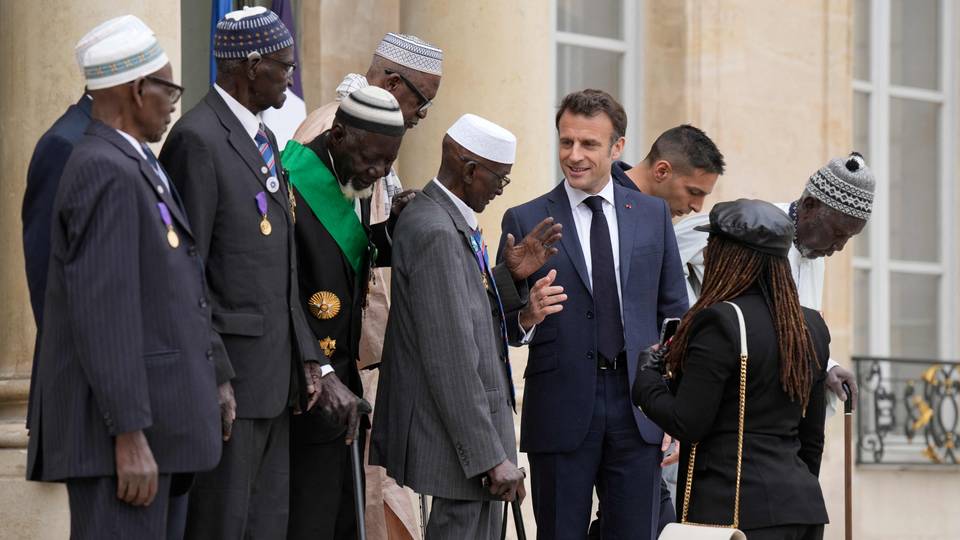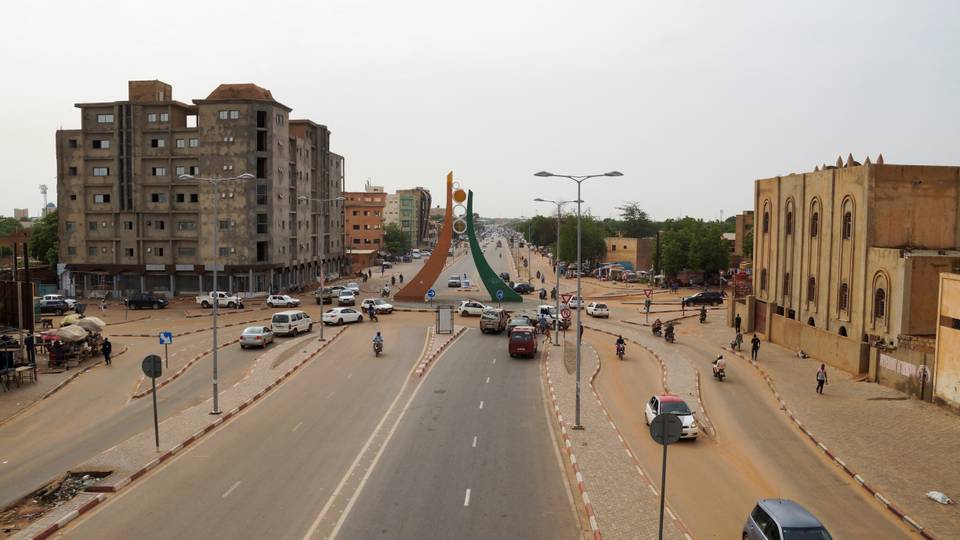Dollar
35,4502
0.03 %Euro
36,3573
-0.02 %Gram Gold
3.055,0800
-0.31 %Quarter Gold
5.000,4700
0.00 %Silver
34,5500
-0.03 %France's diminishing neocolonialist clout in Africa after the forced exit of its troops from several Sahelian countries makes its military base in Djibouti the key to retaining a foothold on the continent.

By Tuğrul Oğuzhan Yılmaz
Djibouti, one of Africa's smallest countries by land area, occupies a unique position at the southern entrance to the Red Sea and the northern gateway to the Indian Ocean.
This strategic location makes it an invaluable hub for nations aiming to enhance their share of international trade.
As a nation with limited natural resources, Djibouti generates revenue primarily from its ports and the foreign military bases it hosts.
"Djibouti is only 20km from Yemen and is considered the gateway to East Africa. Through the Bab-el-Mandeb Strait, 4.8 million barrels of oil pass daily, while 28 million containers traverse the Red Sea annually. This is the world's second-busiest maritime route," Djibouti's ambassador to Türkiye, Aden Houssein Abdillahi, told a think-tank conference in Ankara.
Being the hub of economic activity at such a scale also makes Djibouti strategically important from the military standpoint.
"As a result, Djibouti is home to five military bases. The main reason for these bases is that 75% of the oil heading to Europe passes through Bab-el-Mandeb. Additionally, this route facilitates trade between China, India, and Europe. Another reason is that Djibouti's location is ideal for monitoring activities in both Africa and the Middle East," explains Abdillahi.
The US, France, Italy, Spain, Japan and China currently have bases in the country. Russia, India, South Korea, Saudi Arabia and the UAE have also been focusing on Djibouti as a key player in international power dynamics.
Cold War
The US established Camp Lemonnier, its military base in Djibouti, in 2002. Initially housing 3,000-3,200 personnel, the base now accommodates up to 4,500 troops, including ground forces, naval units and special forces.
The US plans to expand this number to 6,000.
The US pays an annual lease of €56 million (US $57.7 million) for the 200-hectare facility located south of Ambouli airport.
Camp Lemonnier serves as a launch point for counter-piracy and counter-terrorism operations in Kenya, Somalia, and Yemen, consolidating US influence in the region.
France, Djibouti's erstwhile colonial ruler, established its military base in 1969, before the country's independence in 1977.
Despite Djibouti gaining freedom, France retained its military presence, deploying around 1,000 troops initially. Over time, this number grew to approximately 2,500 personnel.
France pays €30 million ($30.9 million) annually for its 418-hectare base, which continues to provide significant political and economic benefits.
However, the increasing presence of other nations has raised concerns in Paris.
Recently, French President Emmanuel Macron visited Djibouti to reinforce France's position as the country faces declining influence across sub-Saharan Africa, where its military bases are being shuttered one by one.
Italy established its 10-hectare military base in Djibouti in 2012, paying €22 million ($22.6 million) in annual rent.
Although the base has a capacity of 300 personnel, it currently houses about 100 special forces for anti-piracy and hostage rescue operations.
Conversely, Spain operates a smaller base, hosting 50 troops within the French military compound since 2008.
Japan has also expanded its presence in Djibouti, given that 90% of its trade ships transit the Gulf of Aden.
Initially operating from the American base with 150–200 personnel, Japan established its 12-hectare facility in 2011, paying €3 million ($3.09 million) annually.
This base, Japan's first one overseas since World War II, currently houses 600 troops and supports operations in Yemen, Oman and Kenya.
The US reportedly supports Japan's presence to counterbalance China's growing influence.
"Our concern is the existence of Chinese and American military bases, more so because they have conflicting interests," Djiboutian Ali Mohamed Farah, a PhD student of political science at Ankara Yıldırım Beyazıt University Institute of Social Sciences, tells TRT Afrika.
Fight to retain foothold

Farah sees France trying to increase its footprint in Djibouti, cashing in on their long relationship.
"I don't think they will theoretically face difficulty setting up new or enhancing existing military bases in Djibouti. But it's also true that the African people negatively view French military presence and its continuing influence. That's because France has not changed its colonial mindset towards countries on the continent," he explains.
So, how and when will the equation change?
"It isn't easy to break free from old colonial powers. It takes time. If African nations can be powerful and economically independent from Western influence, they will get some political freedom. So, maybe the emergence of new world powers like Türkiye, China, India or some others from outside the Western bloc can be the catalyst," says Farah.
China views Djibouti as the lynchpin of its trade and energy strategy, with 80% of its trade with the EU and 40% of its oil imports transiting the Red Sea and the Indian Ocean.
Beijing has invested heavily in Djibouti's infrastructure, building ports like Doraleh, Tadjoura and Damerjog, railways, and roads.
While transformative, such projects often saddle African countries with significant debts.
In 2015, China secured the right to establish a military base in Djibouti, opening its 36-hectare facility in Obock two years later at a reported cost of $600 million.
Initially hosting 300-400 personnel, the base now accommodates 2,000 troops, with plans to increase the count to 10,000.
The base supports patrols, humanitarian aid, joint training and exercises in the region, ensuring stable trade routes from the Mediterranean to the Pacific.
Potential for destabilisation
"While these bases provide economic stability for Djibouti, they also raise concerns about foreign interference in domestic affairs. In the event of disputes between non-African powers, these bases could turn Djibouti into a hotspot for unrest," Dr Hasan Aydın from Shanghai University's Center for Global Studies tells TRT Afrika.
"Moreover, the involvement of actors like China restricts the influence of traditional powers such as France, which has had to withdraw from many of its bases in sub-Saharan Africa," he says.
Recently, French President Macron met his Djibouti counterpart, Ismail Omar Guelleh, in a bid to solidify France's position in the country.
But wary of a public backlash, many other African leaders are distancing themselves from Paris.
As more African nations sever their military ties with former colonial powers, the question arises: Is Djibouti the last hope for France in Africa?
➤Click here to follow our WhatsApp channel for more stories.




















Comment